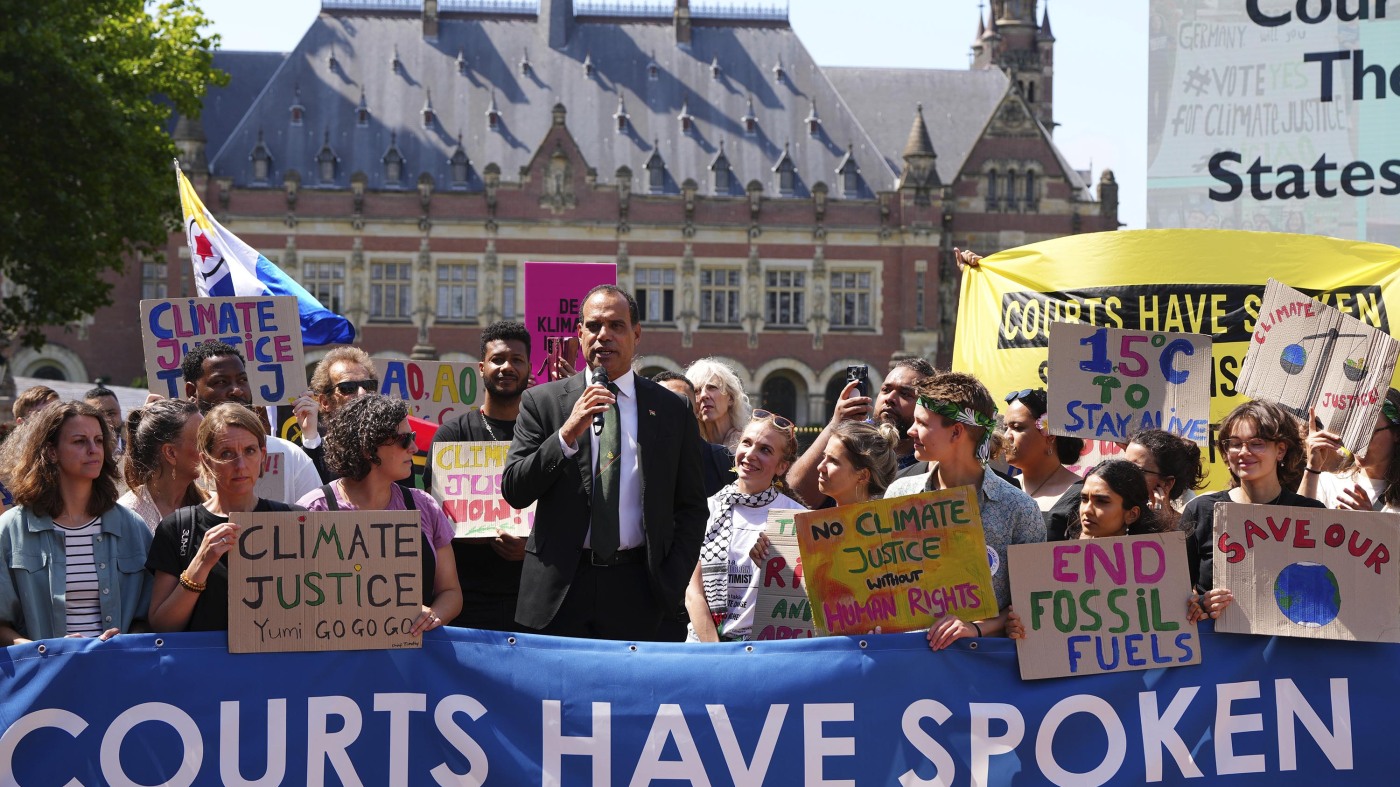T4K3.news
World court issues landmark ruling on climate responsibility
The International Court of Justice declares states may face legal consequences for climate inaction.

A landmark ruling from the International Court of Justice may reshape climate litigation.
World court sets new precedent in climate change accountability
The International Court of Justice (ICJ) has declared that failing to protect the planet from climate change could violate international law, emphasizing that nations may face reparation claims as a result. This verdict, from the largest climate-related case to date, involved 96 nations and substantial documentation. Judge Yuji Iwasawa stated that a state's inaction regarding climate protection may be deemed an international wrongful act. The court also affirmed a clean and sustainable environment as a human right, opening doors for legal actions between countries. The opinion has excited campaigners, particularly in vulnerable nations, yet it remains a non-binding advisory opinion, leading to uncertainty about its practical implications.
Key Takeaways
"Failure of a state to take appropriate action to protect the climate system may constitute an internationally wrongful act."
Judge Iwasawa articulates the potential legal ramifications for states failing to act on climate change.
"For the first time, the world's highest court has made clear that states have a legal duty not only to prevent climate harm but to fully repair it."
Joana Setzer highlights the implications of the court's ruling for future lawsuits.
"This is the start of a new era of climate accountability at a global level."
Danilo Garrido emphasizes the ruling's potential to inspire further legal actions.
"In five years or 10 years time, small islands like ours will cease to exist."
Cynthia Houniuhi reflects on the urgency of climate action for vulnerable nations.
This ruling represents a significant shift in international climate law, adding legal weight to calls for accountability from polluting nations. With more countries understanding their ongoing responsibilities under international law, we may see a rise in climate litigation. The implications extend beyond environmental impact; they suggest a direct moral obligation for nations, especially wealthier ones, to assist those most affected by climate change. The non-binding nature of the ruling adds a layer of complexity, as nations may resist accountability claims even amid logical and ethical imperatives.
Highlights
- This is a start for a new chapter in climate accountability.
- Imagine showing photos of islands that used to be.
- Climate change must not go unchecked if justice is to prevail.
- We can no longer simply hope for a better world.
Potential risks from new legal precedents
The ruling could provoke political reactions from industrialized nations reluctant to accept additional legal responsibilities and reparations for climate damages. As countries reassess their obligations, tensions may arise around how international law is interpreted regarding climate change.
The effects of this ruling may unfold over the coming years as countries reassess their legal obligations.
Enjoyed this? Let your friends know!
Related News

ICJ ruling could empower climate reparations

Nations must act on climate or face legal repercussions

UN court recognizes clean environment as a human right

UN court allows legal actions for climate change damages

90,000 Attend Pro-Palestinian March in Sydney

Man awarded $12,500 after Google captures him naked

UK mandates new online safety regulations

Jury holds Tesla partly liable for 2019 crash
